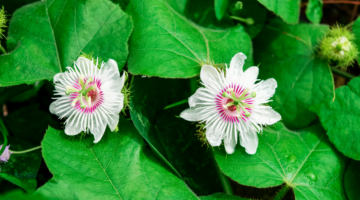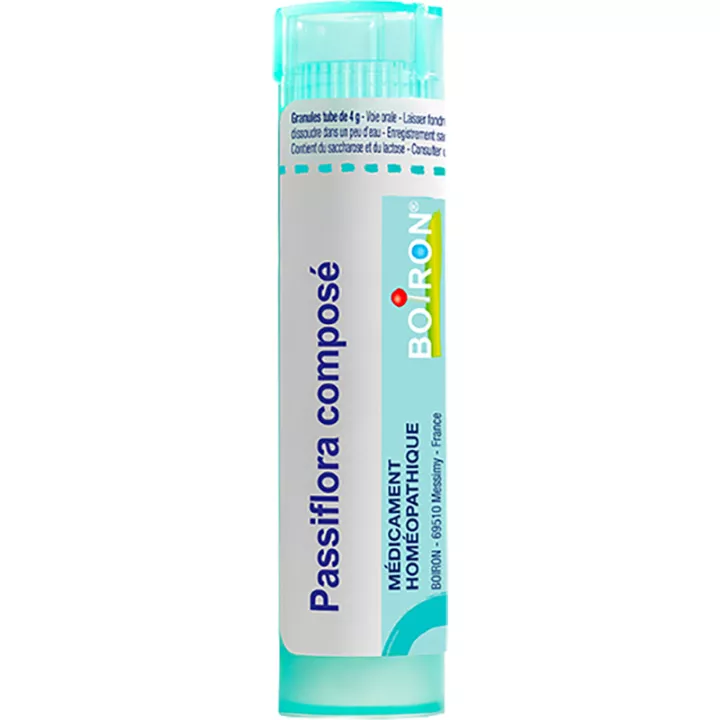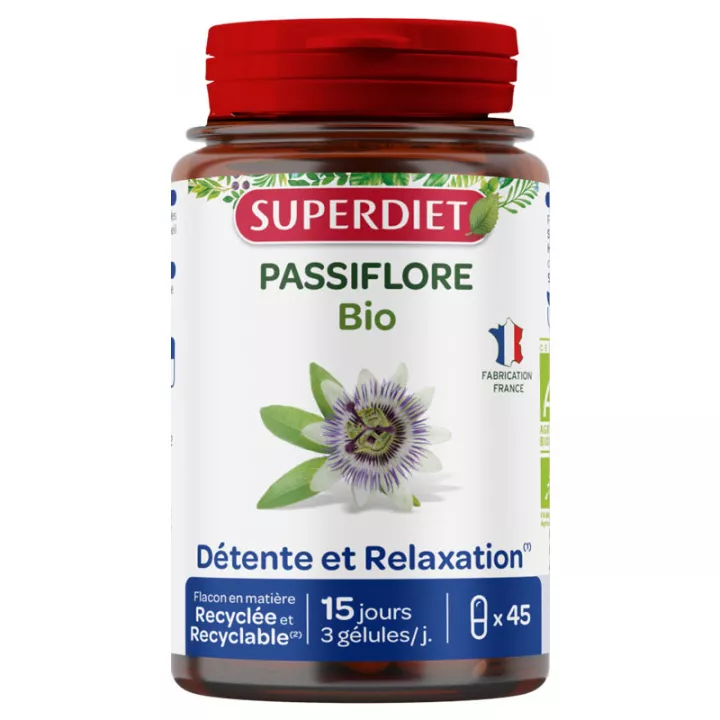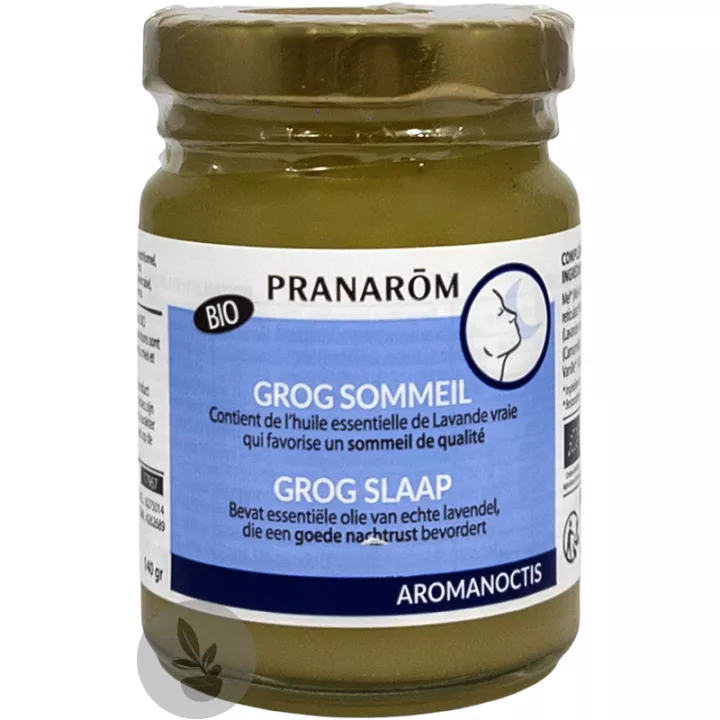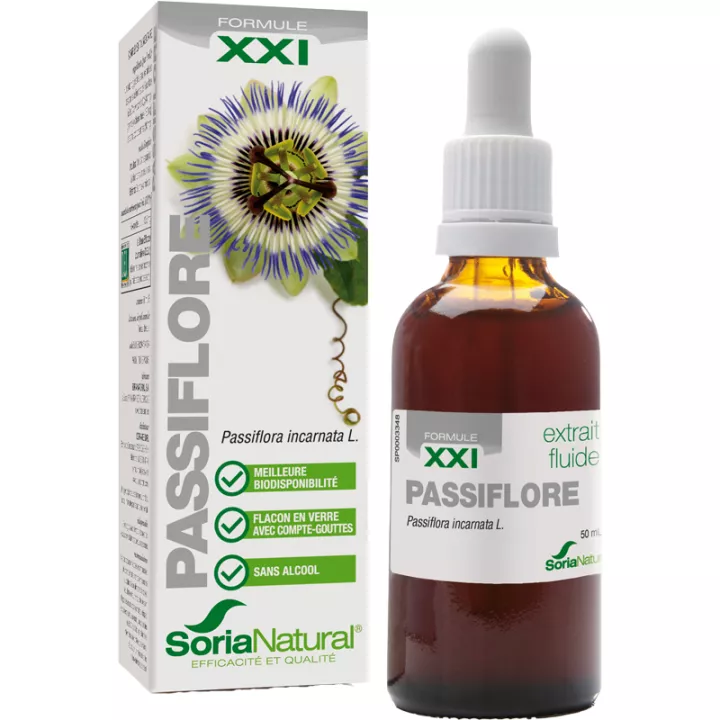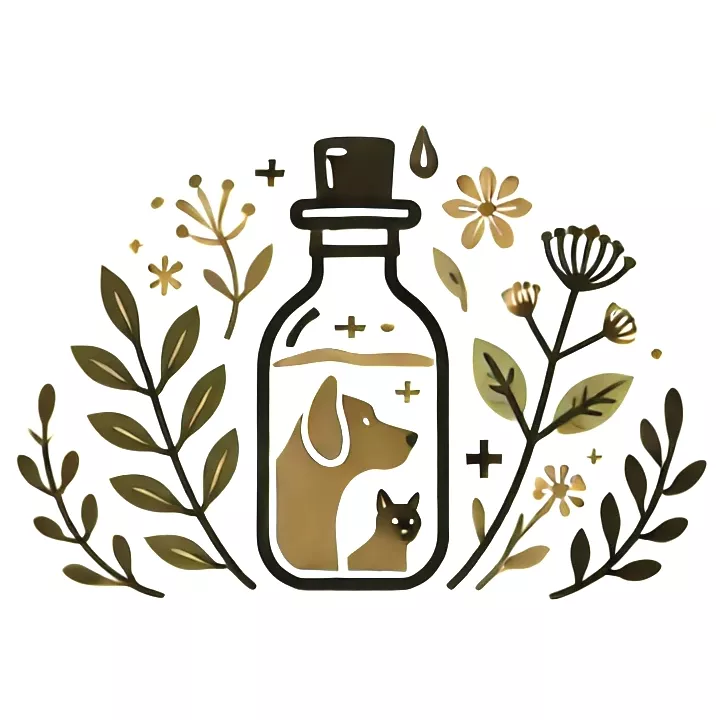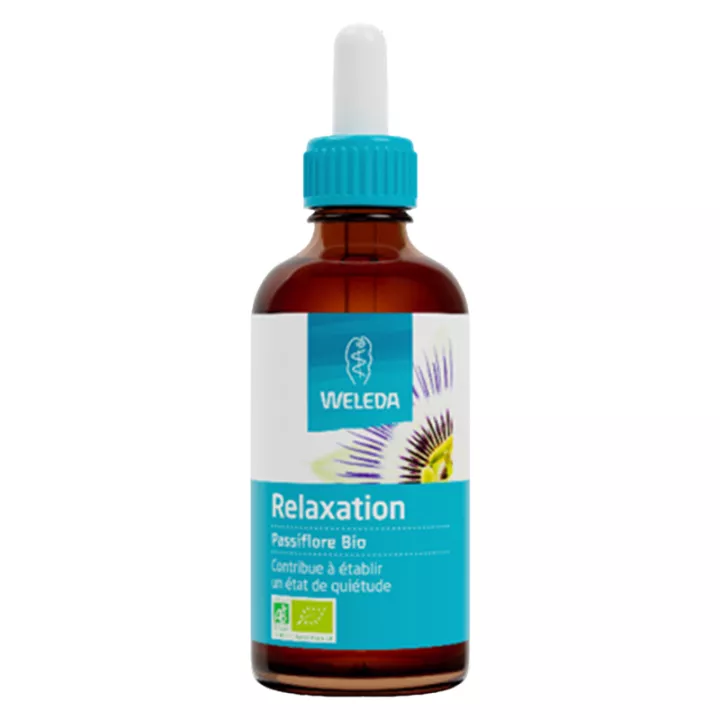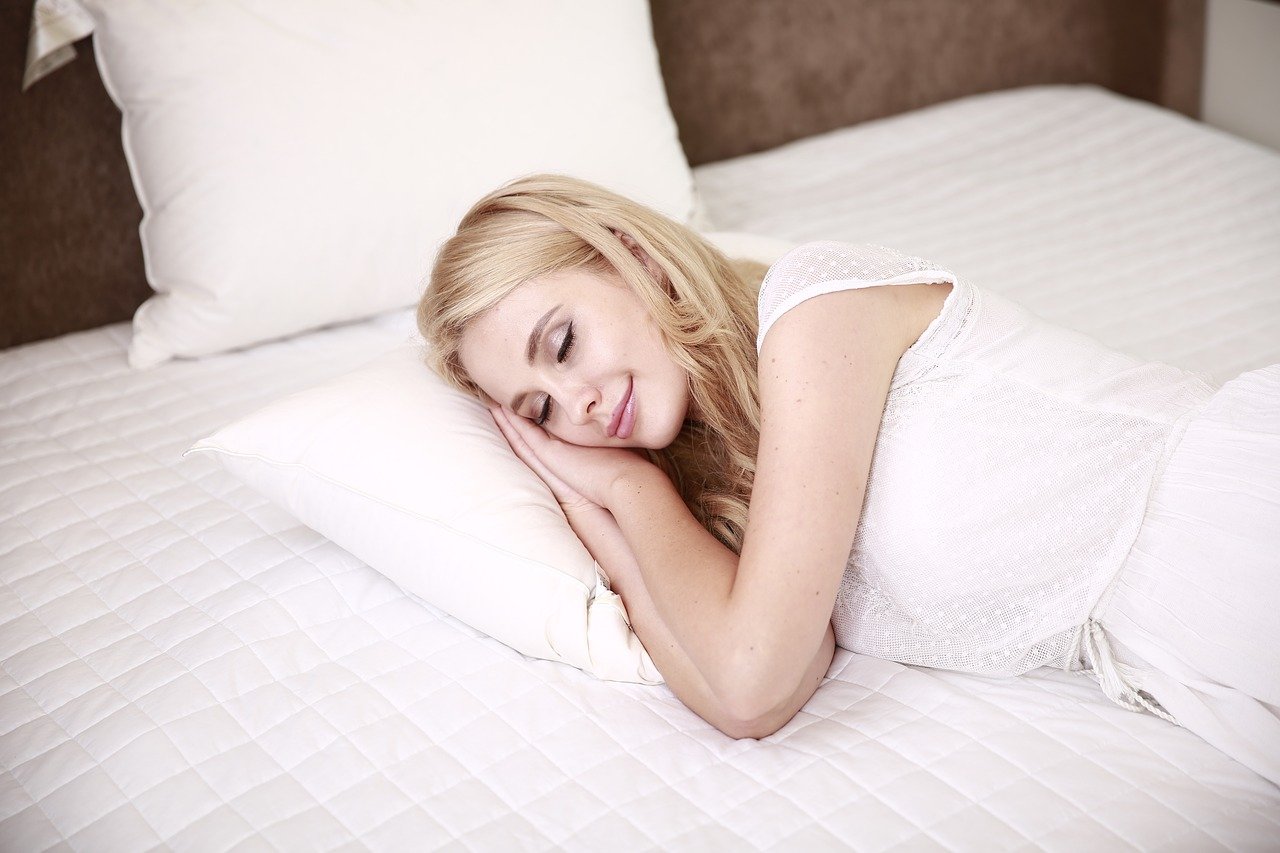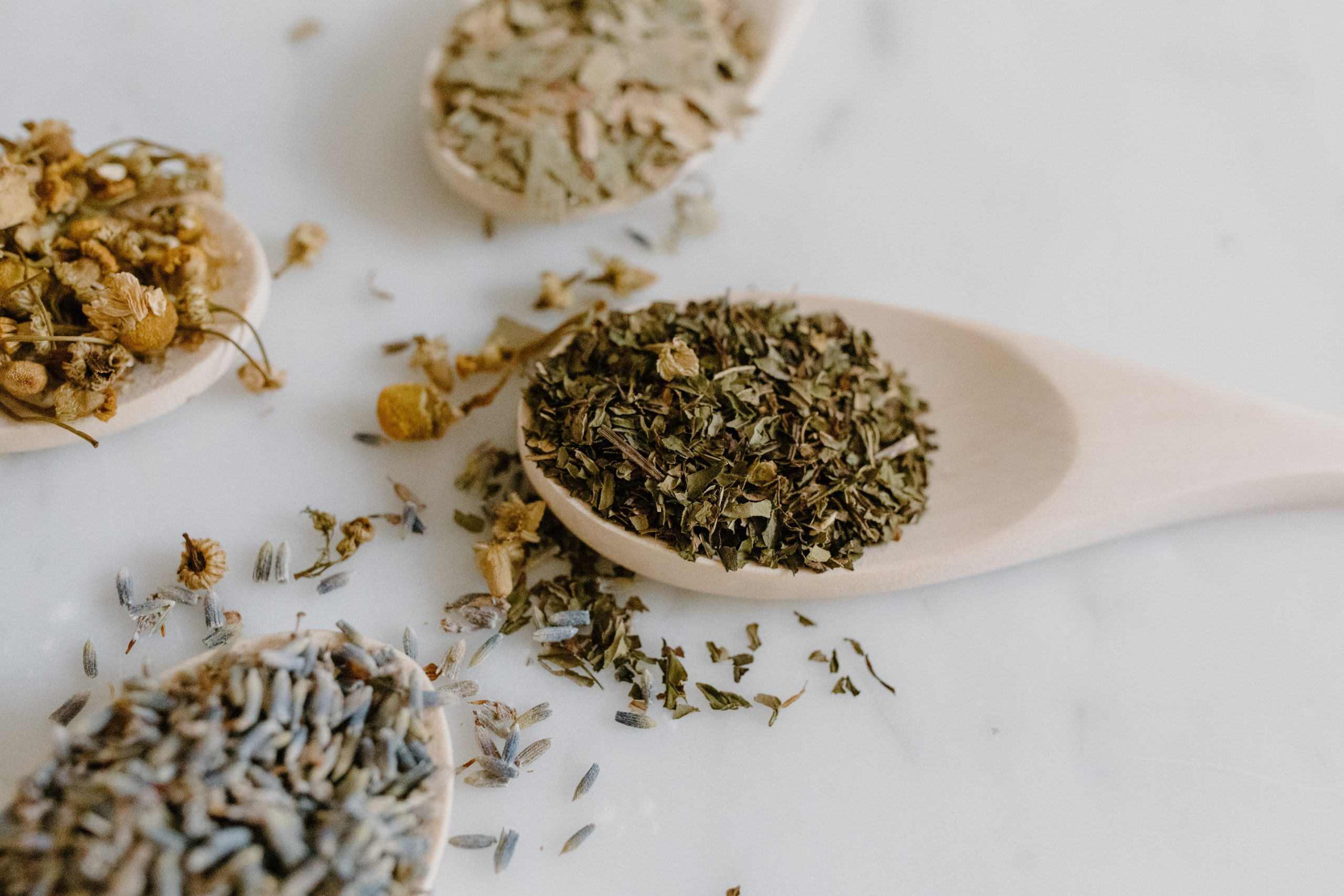What is Cut Passionflower used for?
Passionflower Cut Plant is widely recognized for its natural sedative properties. This plant has been used for centuries, and is now appreciated for relieving mild sleep disorders and the physical manifestations of anxiety. It is particularly recommended for those suffering from chronic stress, palpitations or digestive disorders of nervous origin. Its active compounds, such as flavonoids and maltol, act directly on the central nervous system, providing a feeling of calm and well-being. Its effectiveness is enhanced when combined with other plants such as hawthorn, which also has soothing properties.
Passionflower is a medicinal plant renowned for its soothing effects on the nervous system. Its active compounds, notably chrysin and apigenin, act on GABA receptors, responsible for regulating anxiety. By stimulating these receptors, Passionflower helps reduce anxiety, palpitations andnervous agitation. This natural action on the brain helps to better manage daily stress and improve the quality of life of people suffering from anxiety disorders. In times of intense stress or emotional change, incorporating Passionflower into your routine can offer effective, natural support.
Sleep disorders, such asinsomnia or difficulty falling asleep, are often linked to excessive stress and anxiety. Passionflower, with its relaxing properties, promotes quality sleep by reducing agitation and promoting muscle relaxation. Maltol, one of its compounds, is particularly effective in inducing a state of calm conducive to falling asleep. By taking Passionflower as an infusion before bedtime, you can naturally extend the duration of your deep sleep phases, improving your nocturnal recovery and daily energy.
In addition to its sedative effects, Passionflower is renowned for its action on nerve-related pain. It can be used to alleviate headaches, menstrual pain and abdominal cramps. Betacarbolines, alkaloids present in the plant, interact with opioid receptors, producing an analgesic and antispasmodic effect. Passionflower thus offers a natural solution to recurrent pain, without the side effects associated with chemical analgesics. By incorporating this plant into your routine, you can manage your pain naturally and gently.
Iphym also offers Wild Pansy Cut Plant at the best price in our online pharmacy.
How to use this plant
To reap the full benefits of Passionflower, we recommend using it as an infusion. Add one teaspoon (1-2 g) of Passionflower powder to 150 ml of boiling water and leave to infuse for ten minutes. This infusion can be taken one to four times a day, preferably between meals. For sleep disorders, take a cup about 30 minutes before bedtime to promote a peaceful night's sleep.
Give your opinion on the advice for use and dosage of Passionflower Cut Plant with our partner Avis Vérifiés after your purchase.
Precautions for use
Passion flower is not recommended for people allergic to the plant. Side effects are rare, but may include nausea, digestive disorders and allergic reactions. Due to its sedative properties, Passionflower may cause reduced alertness, so it is recommended not to drive or operate machinery after taking it. Caution is also advised for those taking medication, as Passionflower may interact with various sedatives, anticoagulants or substances affecting the liver.
What is its composition?
Latin name: Passiflora incarnata L.
Family: Passifloraceae
Other names: Passion flower, Grenadilla
Active ingredients : Indole alkaloids, pyrone, flavone heterosides, flavonoids, phenolic acids, cyanogenetic glucosides
Available at
Available in 50 g, 100 g, 250 g or 1 kg packs.
